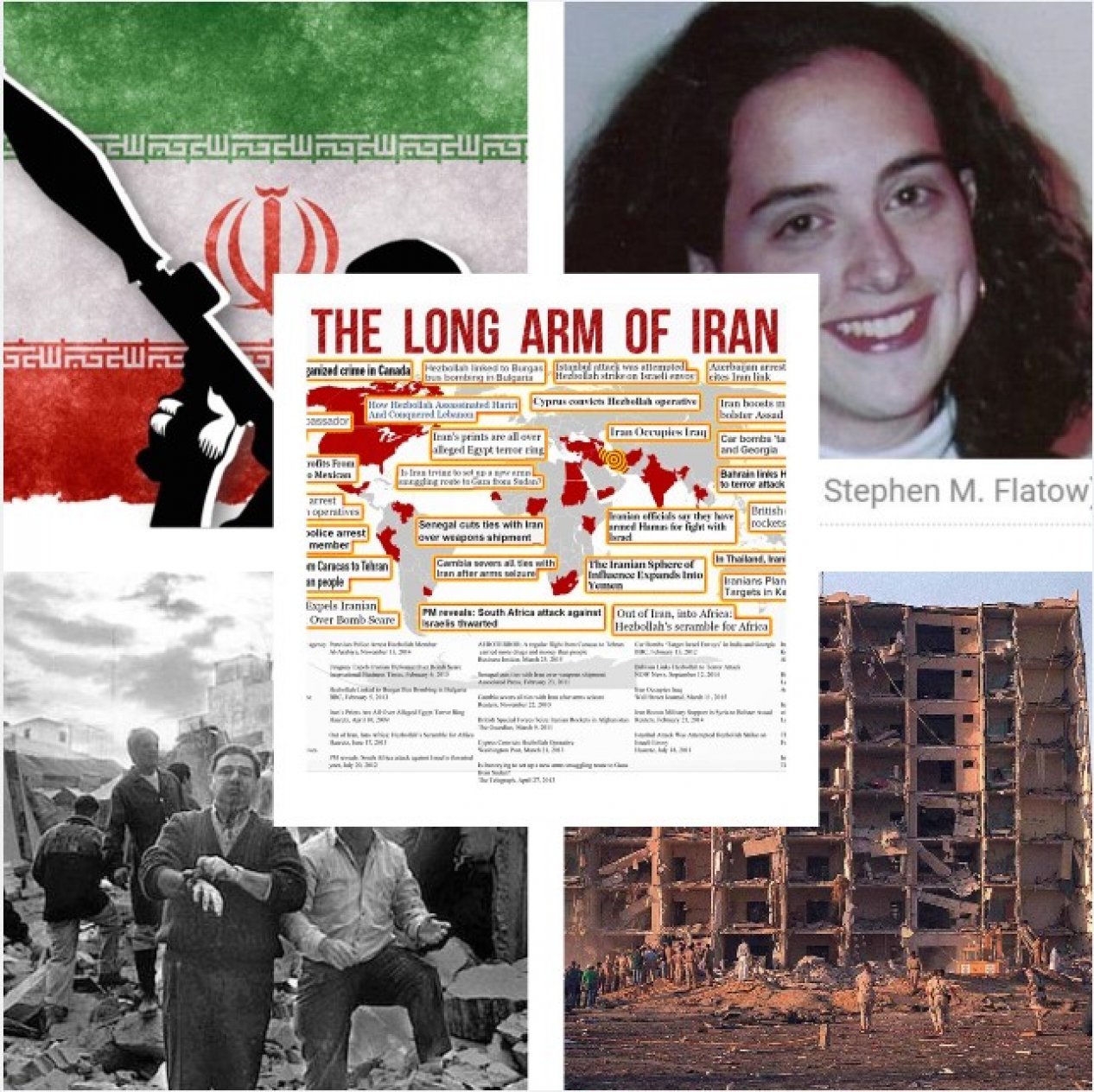
On January 28, 2023, around 8:30 in the morning, the Azerbaijani embassy in Tehran was attacked. As a result of the attack, one employee of the embassy was killed and another employee was seriously injured. (link)
Unfortunately, this is not the first incident in the history of Iran. Even though various versions of this event are being voiced in the traditional media of Iran and social media channels fed by the special services of this country, provocative and groundless news are being spread, this doesn’t change the truth about Iran.
Faktyoxla Lab. has prepared a chronology of terror attacks carried out by the Iranian state.
Experts who are closely familiar with Iran's foreign policy say that it is based primarily on the preamble of Iranian constitution and the directive of Ayatollah Khomeini, which is based on the idea of exporting revolution. In a flagrant violation of the sovereignty of other states and interference in their internal affairs, Iran recruits militias in Iraq, Lebanon, Syria, and Yemen under what it calls in support of the vulnerable and subjugated peoples. (Source)
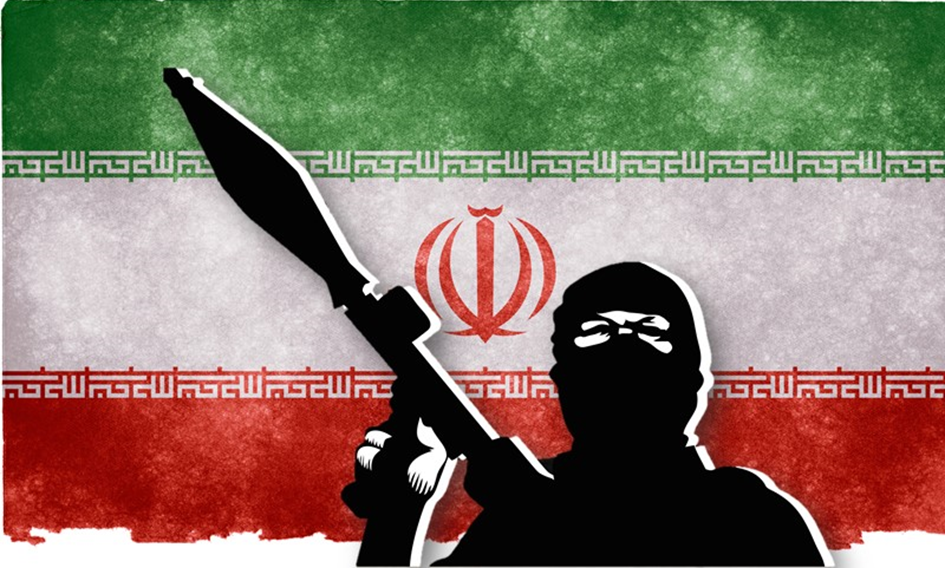
It continues to support terrorism by providing safe havens for terrorist organizations on its territory, planting terrorist cells in a number of Arab countries, and assisting in terrorist bombings that have caused the loss of many innocent lives. It has assassinated opposition figures abroad, has continually violated the sanctity of diplomatic missions, and has even assassinated or attempted to assassinate diplomats around the world.
From the ideological point of view, the main goal of Tehran is to convince the terrorists that their goals are correct, to know and spread the idea of an Iranian-type Islamic state, to overthrow the regimes that oppose its policies, to fight with Israel, etc. However, strategic considerations are also vital in this process. This state's patronage of terrorist groups, opportunities to ideologically influence the local population, and secret ties have allowed Iran to expand its "influence". (link)
This article is available in Turkish here
This fact sheet illustrates Iran's aggressive policies over nearly four decades, and categorically refutes the persistent lies promoted by the Tehran regime.
The most definitive opinion about the process is in the US State Department's report on Iran published on May 22, 2020: “Since coming to power in 1979, the Iranian regime has been implicated in assassinations, terrorist plots, and terrorist attacks in more than 40 countries.” In the report, it is noted that Iran’s global campaign of terror included as many as 360 targeted assassinations in other countries, and mass bombing attacks that killed and maimed hundreds.
For example, in October 1988, a car driving towards the Iranian border raised the suspicions of the Turkish police. When the car was stopped, a bound and gagged man was found in the trunk. The car's diplomatic license plate number and a little research revealed that the car belonged to the Iranian embassy. Two of the passengers were employees of the embassy, and the person who taped his mouth was Abdol Hassan Mojtahedzadeh, a member of the opposition People's Mojahedin Organization of Iran (PMOI). (link)
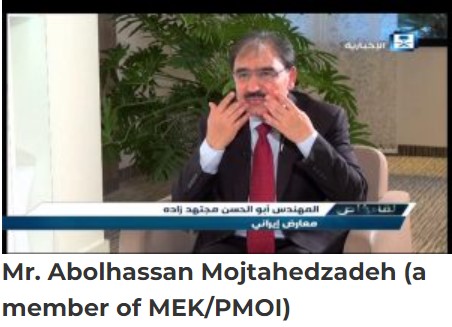
A year before the arrest of the two Iranian diplomats, Turkey expelled the Iranian ambassador, Manouchehr Mottaki, who later became foreign minister during Ahmadinejad's presidency, for similar actions by Iranian agents.
Abduction of people outside the borders of Iran dates back to the early days of the establishment of the Islamic Republic. Even the sister of Ayatollah Ali Khamenei was not left out. In the early 1990s, agents of the Ministry of Intelligence kidnapped Badri Hosseini Khamenei, who went to Iraq with her children, and forced her to return to Iran. Her husband, Sheikh Ali Tehrani, was Khorasan's representative in the Constituent Assembly after he was turned into an anti-regime force, and sought asylum in Iraq in 1984. However, he also returned to Iran in 1995. (link)
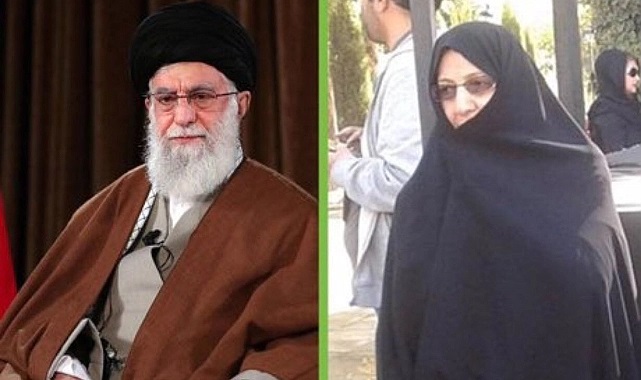
Another fact. The 1983 bombing of the barracks of a multinational peacekeeping contingent in Beirut by the Iranian-backed Lebanese Hezbollah. As a result, two trucks filled with explosives killed 241 US marines, 58 French soldiers and 6 civilians, and seriously injured others. Since then, US courts have ordered the Islamic Republic to pay billions of dollars in compensation to the victims' families. However, the other party did not accept this claim. source
The US State Department letter also mentions that on 9 July 1995, Alisa Michelle Flatow, a twenty-year old US citizen in Israel on a foreign study program, was tragically killed in a suicide bombing in the Gaza Strip. A terrorist group supported by Iran claimed responsibility for the attack. In 1998, a US federal district court found that Fallahian contributed to her death by personally approving the provision of resources to the terrorist group that killed her. source
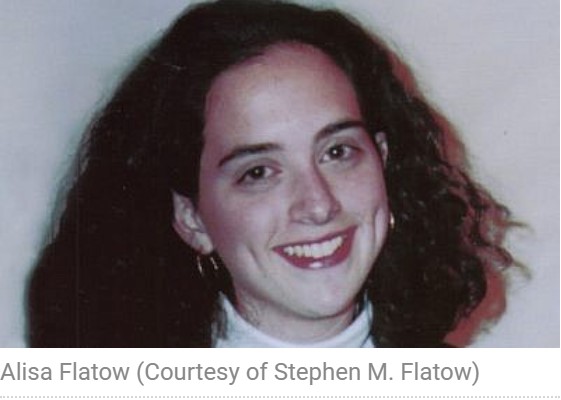
In the 1980s, Iranian authorities were responsible for the kidnapping and murder of a number of American diplomats in Lebanon.
Let's remember the event known as the "hostage crisis" in Lebanon in 1982, which lasted for 10 years. In that operation, 96 foreigners, including 25 Americans, were kidnapped. Most of the kidnappings were carried out by Hezbollah and other Shia militants supported by Iran. Also, the bombing of the US embassy in Beirut by Hezbollah in 1983, which resulted in the death of 63 people, was planned by the Iranian regime.
In 1983, members of Hezbollah and the Iranian-backed Shiite Hizb al Dawa group carried out a series of attacks, including attacks on the US and French embassies, an oil refinery, and a residential area in Kuwait. These attacks resulted in 5 deaths and 8 injuries.
In 1984, Hezbollah attacked the US embassy east of Beirut, killing 24 people.
In 1985, several soldiers and citizens were killed as a result of a bomb attack on the convoy of the late Sheikh Jaber al-Ahmad Al-Sabah, the Emir of Kuwait.
In 1985, the Iranian regime hijacked a TWA flight and held 39 American passengers hostage for weeks.
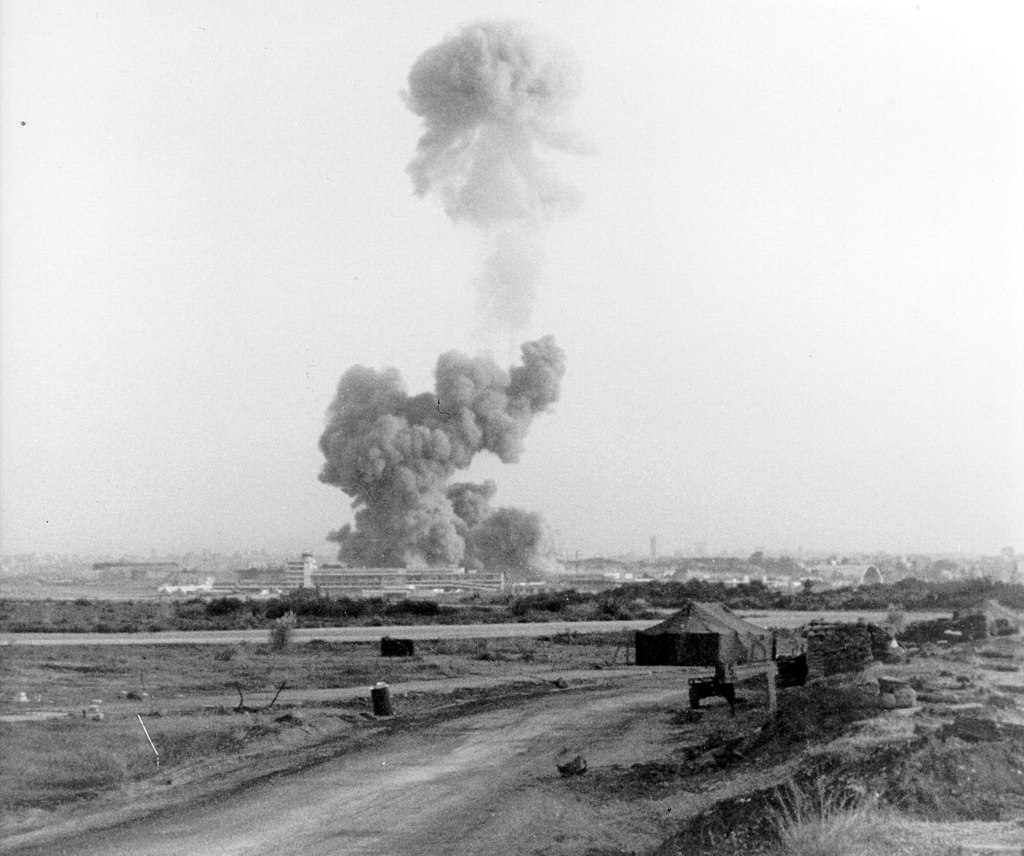
In 1986, when Iran called pilgrims to riot during the Hajj season, mass riots broke out and hundreds of civilians were killed in this conflict.
In 1987, the terrorist organization Hezbollah Al-Hejaz blew up an oil plant in Ras Tanura, one of the eastern provinces of Saudi Arabia. In 1988, this group attacked the Saudi Petrochemical Company (SADAF) facility in Jubail, eastern Saudi Arabia.
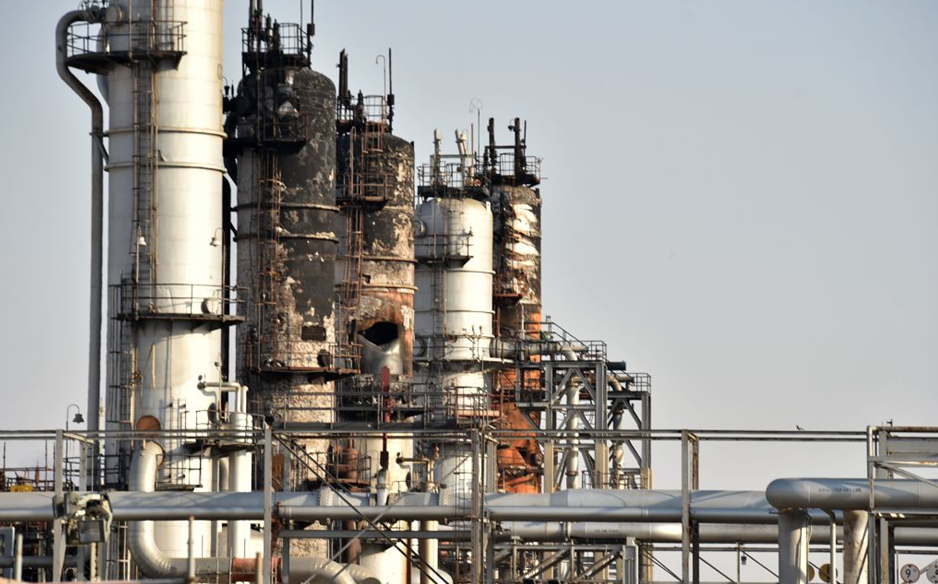
In 1987, Iran participated in the assassination of Saudi diplomat Musaed Al-Ghamdi in Tehran. (source) In the same year, Saudi Arabia prevented Iranian pilgrims from bringing explosives into the country.
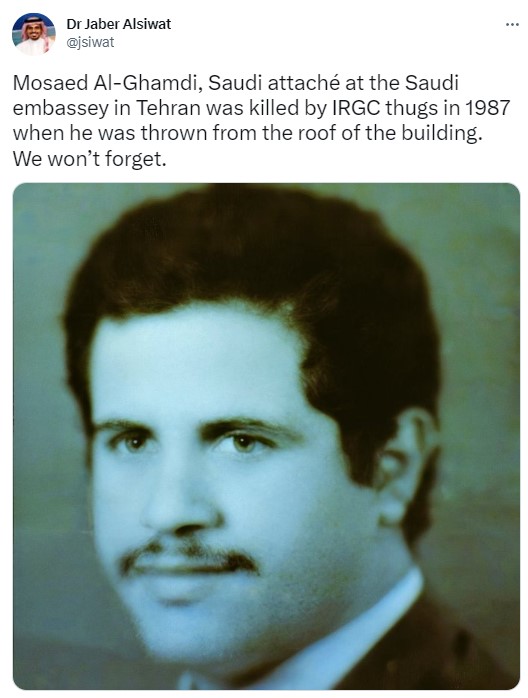
In 1987, the Saudi embassy in Tehran was attacked and Saudi diplomat Reza Abdulmohsen Al-Nozha was assaulted and taken by Iranian Revolutionary Guard forces. He was released following negotiations between Saudi Arabia and Iran. source
Iran participated in a number of assassinations against Iranian dissidents:
The murder of Iranian Kurdistan Democratic Party leader Rahman Ghassemlou and his deputy Abdullah Azar, in Vienna in 1989.
The assassination in France by the Iranian revolutionary guard of Shapour Bakhtiar, the last Prime Minister of Iran under Shah Mohammad Reza Pahlavi, which also took the lives of a French officer and woman.
The assassinations of Secretary-General of the Kurdistan Democratic Party, Sadegh Sharafk and his assistants Fattah Abdoulie, Homayoun Ardalan, and Nuri Dechrda, in the bombing of the Mykonos restaurant in Berlin in 1992. A German arrest warrant was issued for Iran’s then Minister of Intelligence Ali Fallahian role in the bombing.
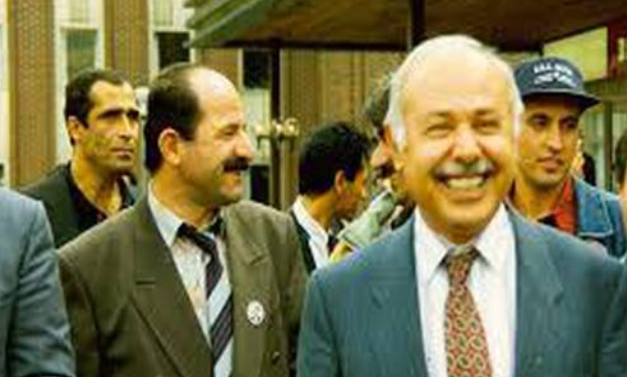
The assassination of former Iranian diplomat and founder of the Iran Freedom Foundation Ali Akbar Tabatabaei in Bethesda, Maryland in 1980.
The Iranian regime was involved in the assassination in Thailand of Saudi diplomats Abdullah Al-Malki, Abdullah Al-Bassri, Fahad Al-Bahli, and Ahmed Al-Saif in 1989 and 1990.
Iran was involved in the bombing of the Jewish Community Center in Buenos Aires in 1994, which resulted in the deaths of 85 people and the wounding 300 others. In 2003, British police arrested Hade Soleimanpour, Iran’s former ambassador to Argentina, for conspiring to carry out the attack.
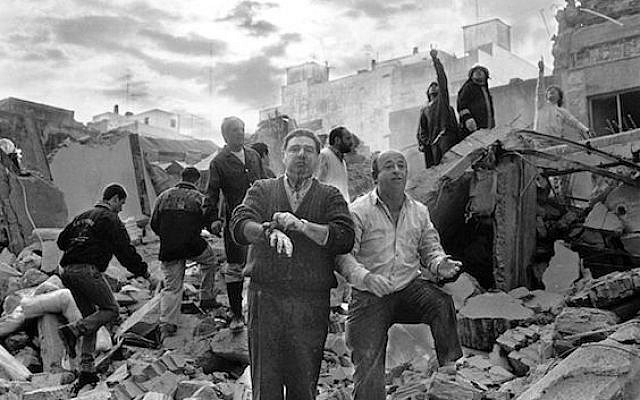
In 1994, the Venezuelan Ministry of Foreign Affairs issued a press release stating that four Iranian diplomats were involved in a covert operation at Simon Bolivar International Airport in Caracas that was aimed at forcing Iranian refugees to return to their country.
Iran was involved in the Khobar bombings in 1996, which was carried out by the pro-Iranian organization Hezbolla-Al Hijaz and resulted in the deaths of 120 people, including 19 Americans. Iran provided protection to the offenders, including Ahmed AlMoghassil, a Saudi citizen who was arrested in Lebanon in 2015 carrying an Iranian passport. The terrorist attacks were directed by the Iranian military attaché in Bahrain. The perpetrators were trained in both Lebanon and Iran. source
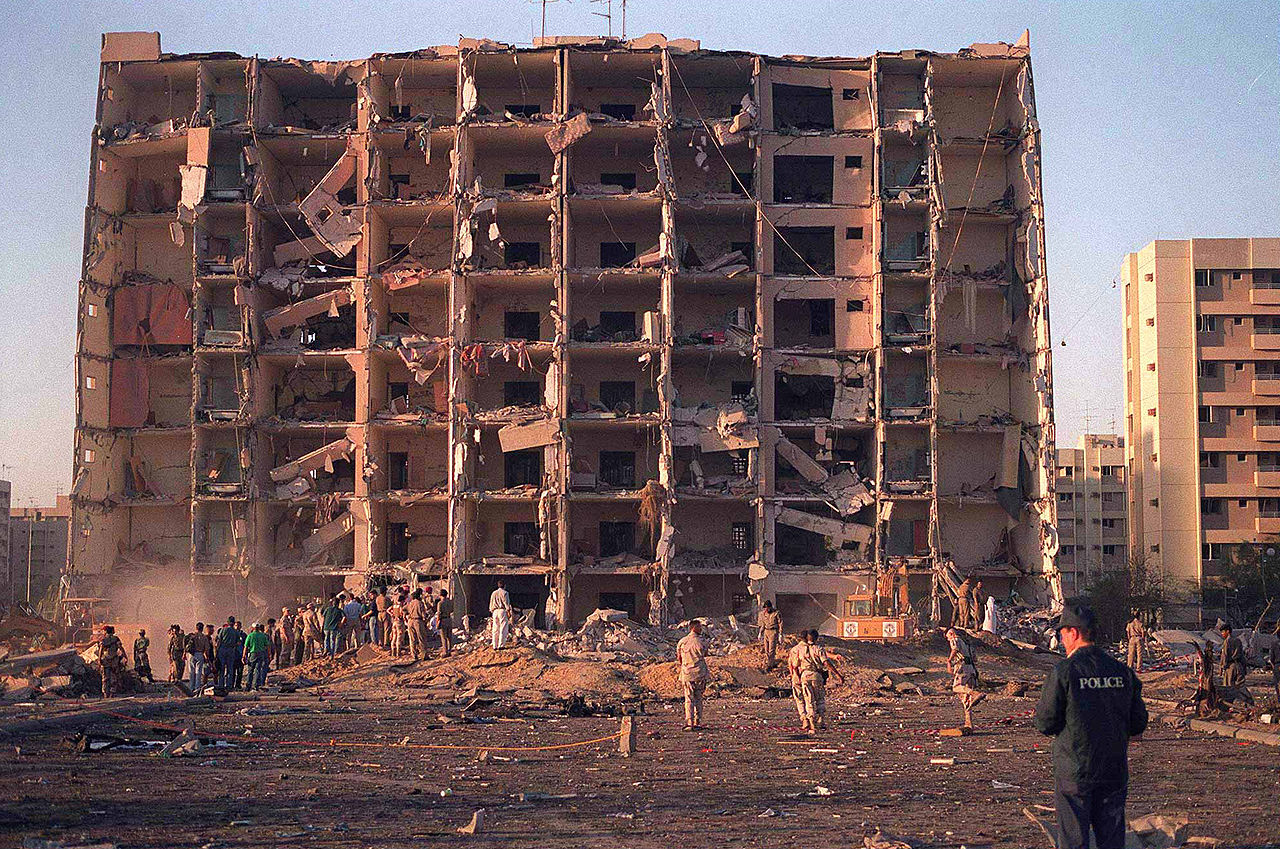
In 2003, the Iranian regime supported Shiite elements in Iraq by forming political parties and militias loyal to Iran. These activities resulted in the deaths of some 4,400 US service members and tens of thousands of civilians, particularly of Sunni Arabs. Former US ambassador to Iraq James Jeffrey said that the Americans who died were killed in operations carried out by groups backed directly by Iran.
In 2006, Washington said that Iran supported the Taliban against US forces in Afghanistan and that it had armed groups different ethnic and sectarian groups to strike the US near Iran’s borders. It said further that the Iranian regime had offered a reward of $1000 for every American soldier killed in Afghanistan.
In 2011, Iran was involved in the assassination of Saudi diplomat Hassan Al-Qahtani in Karachi.
In 2011, the US foiled an attempt to assassinate the Saudi ambassador to the US and proved the involvement of the Iranian regime. The criminal complaint unveiled in federal court in New York identified two people involved in the plot: Mansour Arbabsear, who was arrested and imprisoned for 25 years, and Gholam Shakuri, an officer in the Iranian Revolutionary Guard, who is currently in Iran and wanted by the US judiciary.
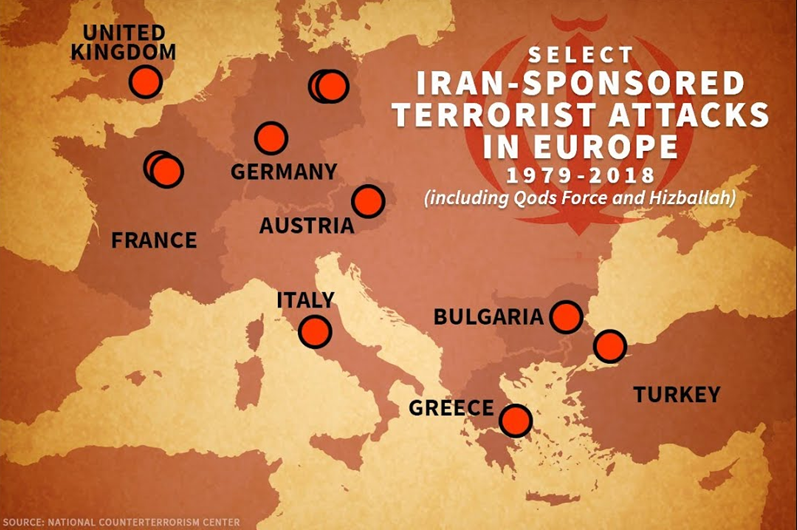
In October 2012, hackers from Iran's Revolutionary Guard carried out cyber-attacks against oil and gas companies in Saudi Arabia and the Gulf. U.S. Defense Secretary Leon Panetta described the cyber-attacks as among the most destructive in the private sector. President Obama's administration said that it is aware that this is the work of the Iranian government.
In 2016, the Kuwaiti criminal court sentenced two members of the “Abdali cell” to death. One has Iranian citizenship. They were charged with carrying out acts that jeopardize the unity and security of Kuwait, and with actively collaborating with Iran and Hezbollah to carry out acts of hostility.
Iranian diplomatic missions form spy networks in different countries to plan and execute terrorist operations. (the spy network is shown on the photo)
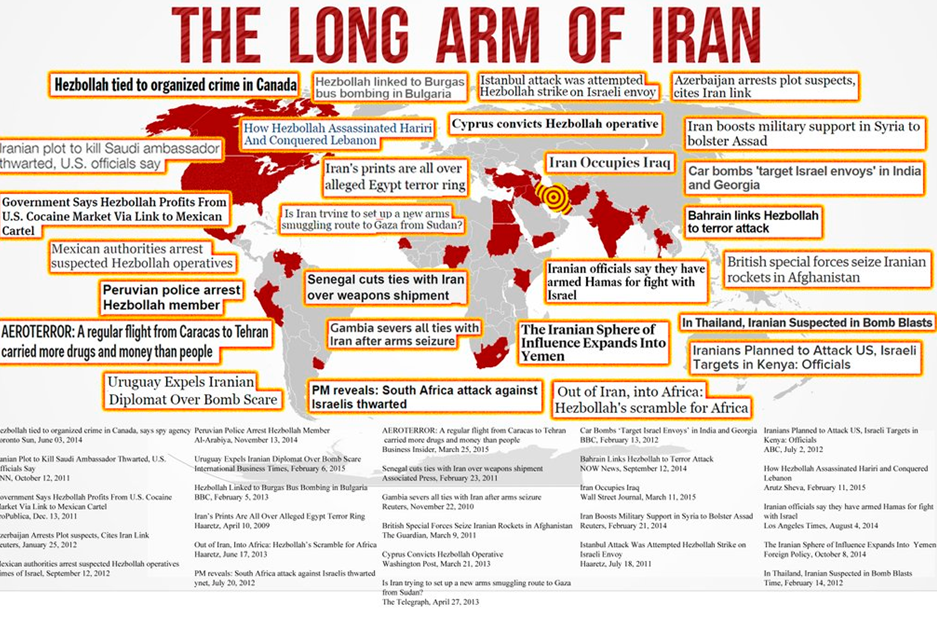
The Iranian regime is the world’s number one sponsor of terrorism. The Quds Force and other state and state-sponsored organizations actively engage in and support terrorist organizations abroad, such as Hezbollah, Hezbollah Al-Hejaz (Saudi Hezbollah), Asa'ib Ahl al-Haq (League of the Righteous) in Iraq, and a number of sectarian militias, including Houthis in Yemen. Iran has supported and conspired with other terrorist organizations, such as Al-Qaeda. Iran has harbored Al-Qaeda leaders, some of whom still enjoy sanctuary in Iran. Iran has been condemned by the United Nations and many countries. International sanctions have been imposed on it.
It is known that Iran sent members of the Revolutionary Guard to Iraq to train and organize Shiite militias and use them to kill Sunnis and international forces.
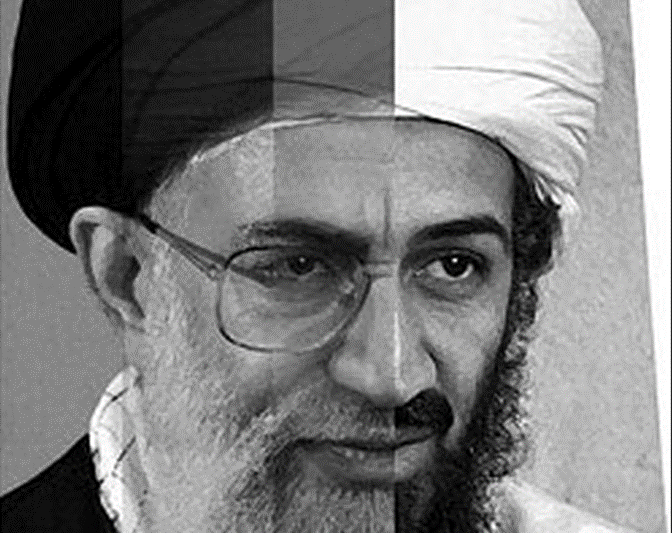
Finally, Iran is the largest distributor of IED explosives in the world. IEDs are used to blow up cars and armored vehicles and have caused the deaths of hundreds of members of international forces in Iraq. source
So, it is safe to conclude that
- It is well known in the international public opinion that Iran is a country that supports terrorism.
- Iran carries out various heinous acts to establish its power in neighboring countries and never denies it.
- Iran, which cooperates with various terrorist organizations and groups, supports them.




















